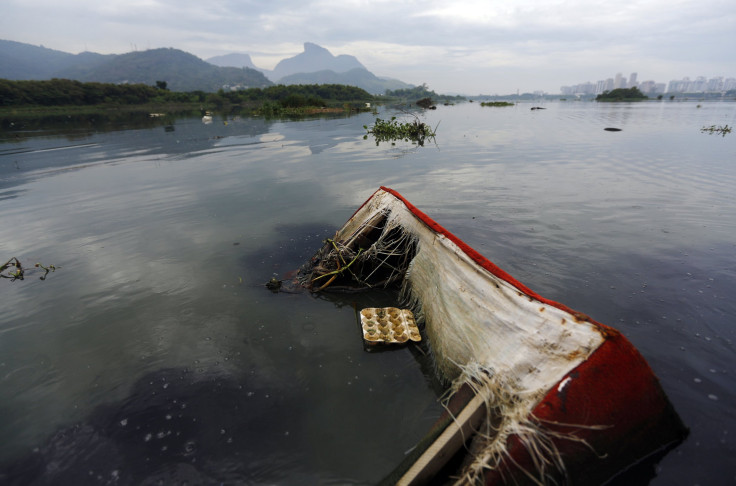Rio Olympics 2016: Water Pollution, Viral Testing To Be Addressed By Next Summer, Official Says

Polluted waterways at planned host sites for the 2016 Olympics in Rio de Janeiro will be clean in time for next summer’s games, the head of the city’s Olympic organizing committee promised this week. The declaration, which comes weeks after Rio’s mayor acknowledged the city’s failure to address severe water pollution, still leaves doubts about whether renewed efforts will truly succeed where others failed.
Several athletes have fallen ill or developed infections while participating in Olympic test events on Rio’s waterways, where about 1,400 athletes are to sail, row and swim (in the triathlon) next year. An independent Associated Press investigation concluded last July that all of Rio’s open-air aquatic venues tested positive for harmful viruses and bacteria. In response, Carlos Nuzman, the Rio Olympic organizing committee’s president, said Tuesday that officials would implement viral testing and install new sewage systems to ensure athlete safety.
“This is a very serious matter, and we are doing our absolute best to protect the athletes’ health,” said Nuzman, according to Reuters. “Marina de Gloria [a planned sailing venue] needs improvement but will be totally clean by the end of the year with the construction of a new pipe structure that will take sewage and rainwater elsewhere.”
The bid to clean Rio’s waterways in such a short period of time will require a costly, gargantuan effort. Rio officials vowed to address the city’s water pollution problems as part of their overall efforts to secure the 2016 Olympics, including a $4 billion expansion of the city’s sanitation system. But efforts so far have been ineffective, even after Rio secured more than $1 billion in loans from Japan toward the project, the Washington Post reported. Past attempts to clean waterways stretch back to at least the early 1990s.
The organisers of the Rio 2016 Olympics say this water will be "totally clean" by next summer http://t.co/xgltXBdyKE pic.twitter.com/nVItzr1wu8
— BBC Sport (@BBCSport) September 1, 2015So far, Rio has failed to build the eight water treatment facilities it promised before the Olympics. Mayor Eduardo Paes said the city had “missed an opportunity” to deal with its tainted water, the AP reported.
The AP’s investigation found that some areas were polluted up to 1.7 million times the levels that would be unacceptable on a California beach. The International Olympic Committee did not previously require host cities to conduct viral testing, but it told Rio to pursue new tests in light of the AP’s investigation and a recommendation by the World Health Organization. Testing will begin later this year, leaving official precious little time to reverse pollution before the games start next August.
“The viral tests, we will do and we will repeat this because the most important [thing] for us to the health of the athletes,” Nuzman told the AP Tuesday. “We are working with our medical department and looking for this.”
© Copyright IBTimes 2024. All rights reserved.






















